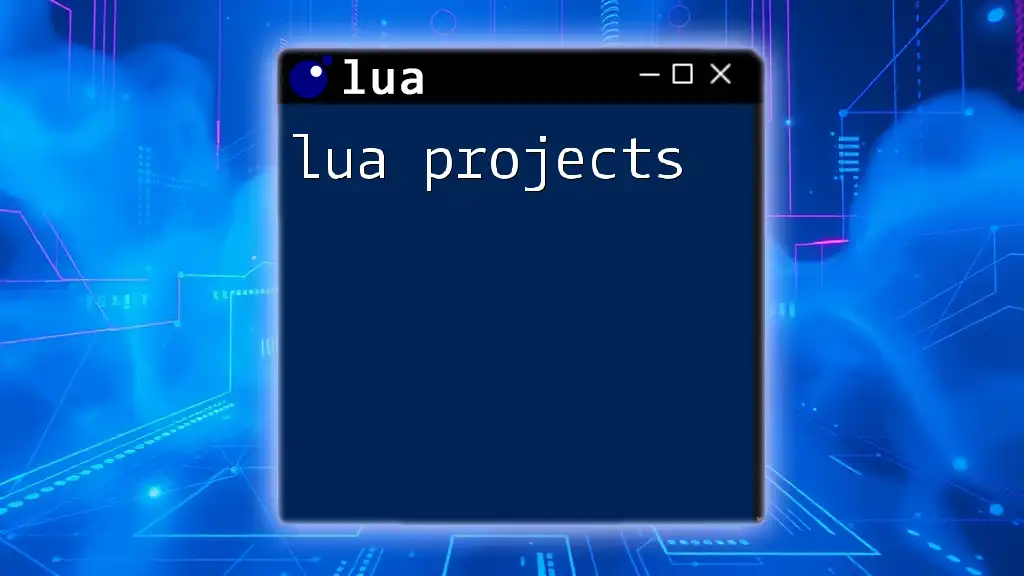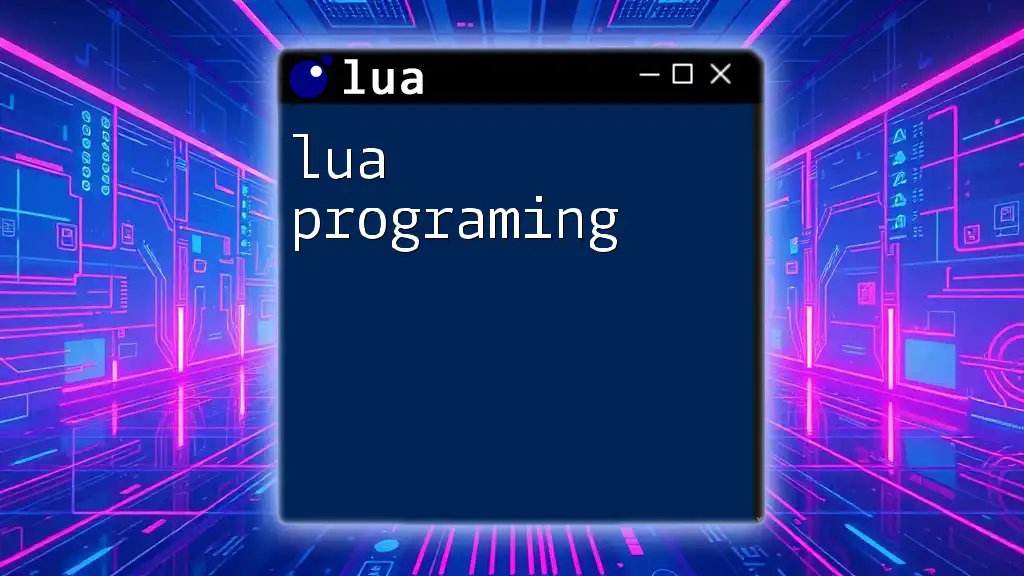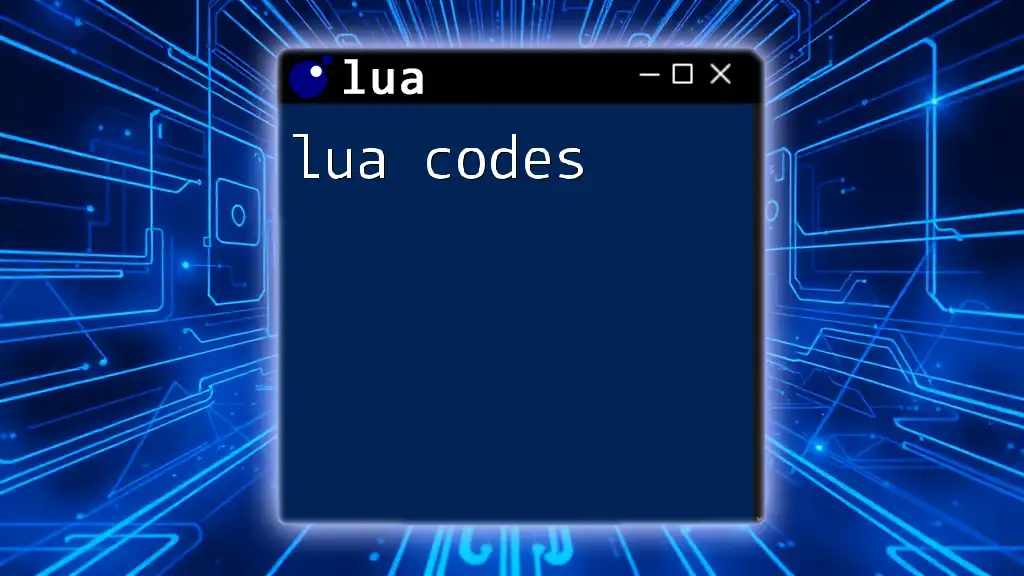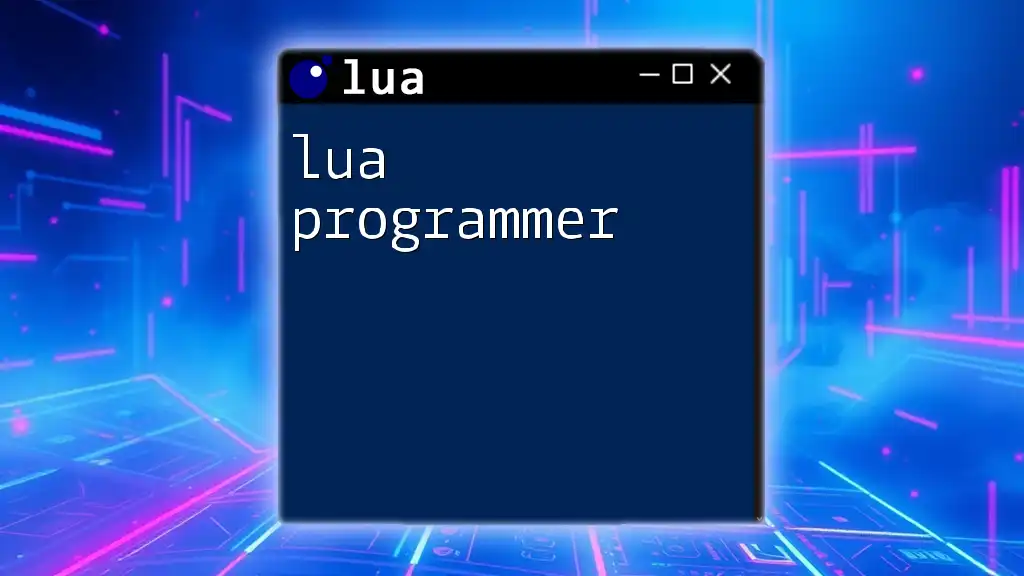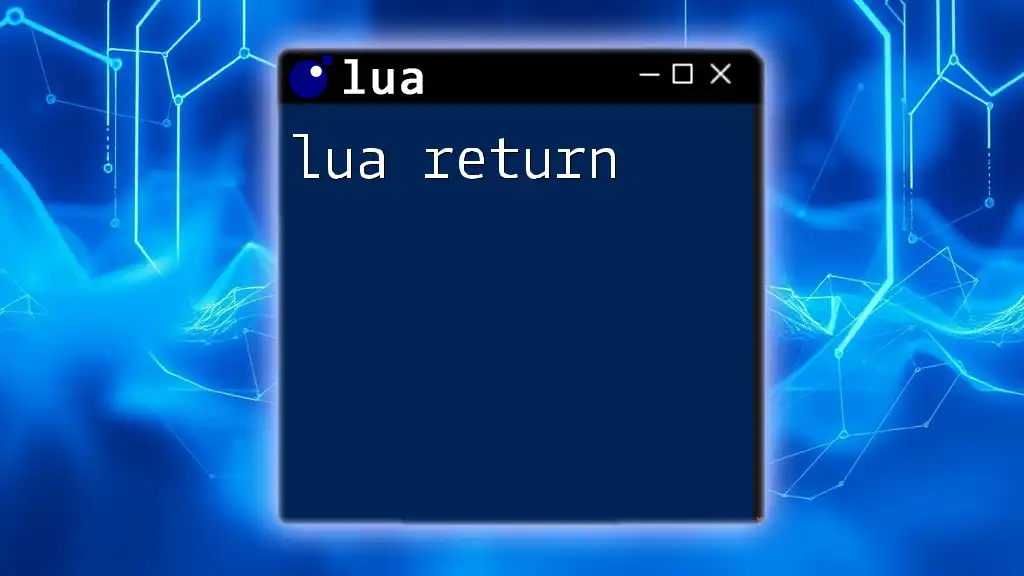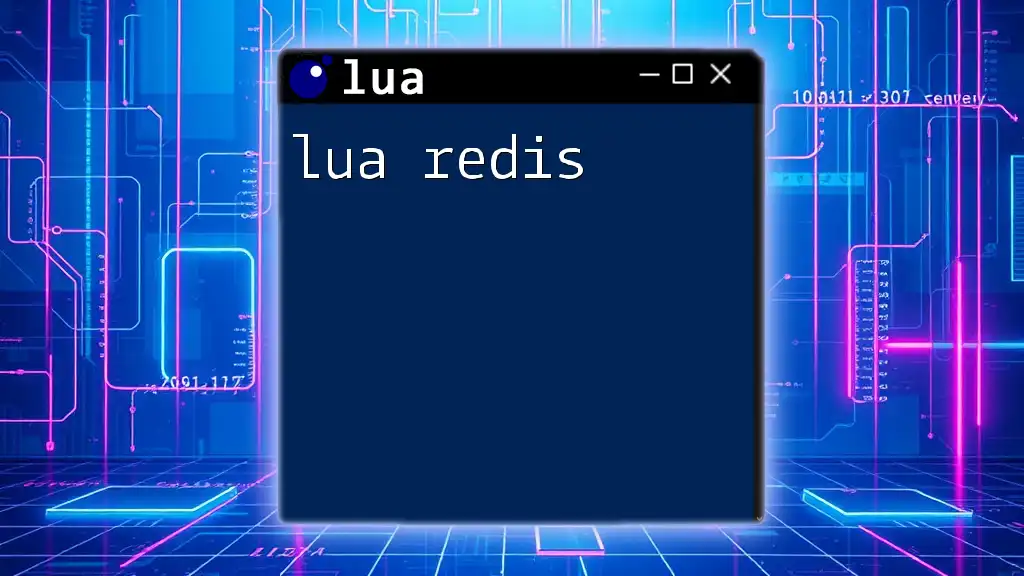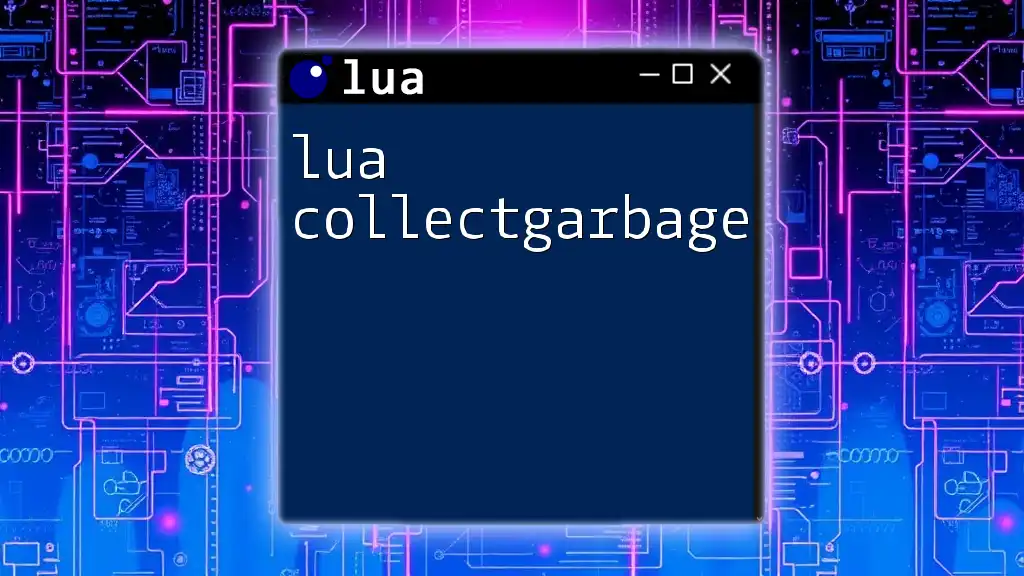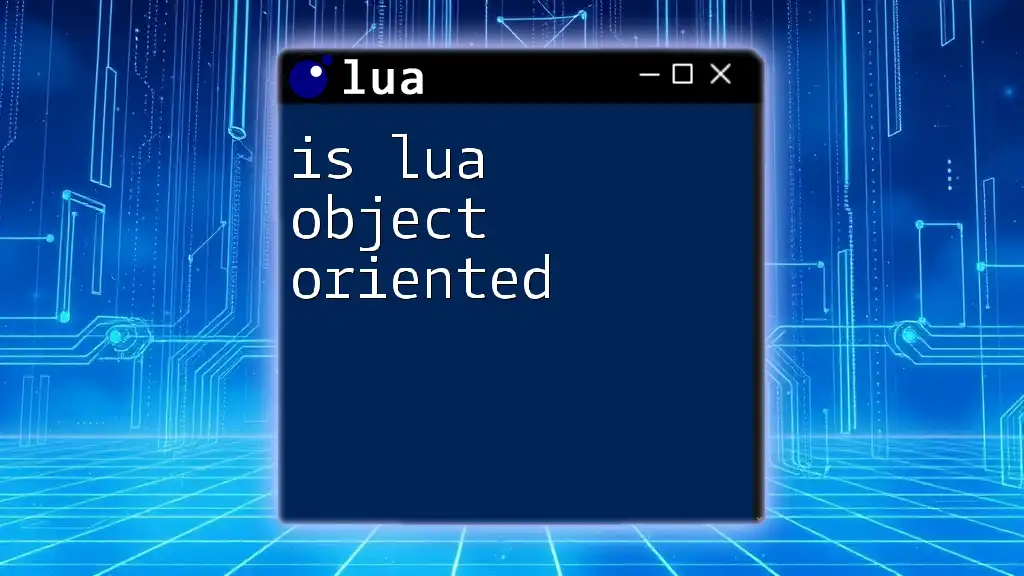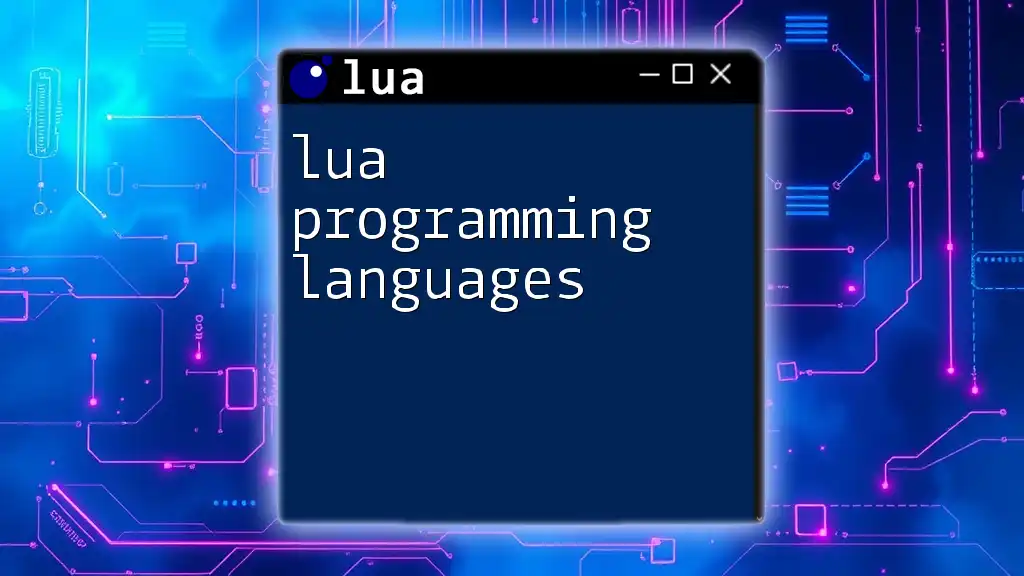Lua projects encompass a variety of applications, from game development to scripting and automation, showcasing the language's versatility through concise and efficient code.
Here’s a simple example of a Lua script that prints "Hello, World!" to the console:
print("Hello, World!")
What is Lua?
Lua, a lightweight scripting language, originated in Brazil in the early 1990s. Designed primarily for embedded systems and applications requiring scriptability, Lua has grown in popularity due to its efficiency and ease of use. Through its simplicity, Lua enables developers to quickly learn and implement various programming concepts, making it particularly appealing for beginners and experienced developers alike.
Benefits of Using Lua
-
Performance Advantages: Lua is known for its high performance and low memory footprint. Its virtual machine and just-in-time compiler allow for rapid execution, making it suitable for (real-time applications) like video games.
-
Versatility: Lua can be integrated into various types of applications, from game development to data analysis and web applications. As a result, it is used in popular game engines, such as Roblox and LÖVE, as well as in embedded devices and system configurations.
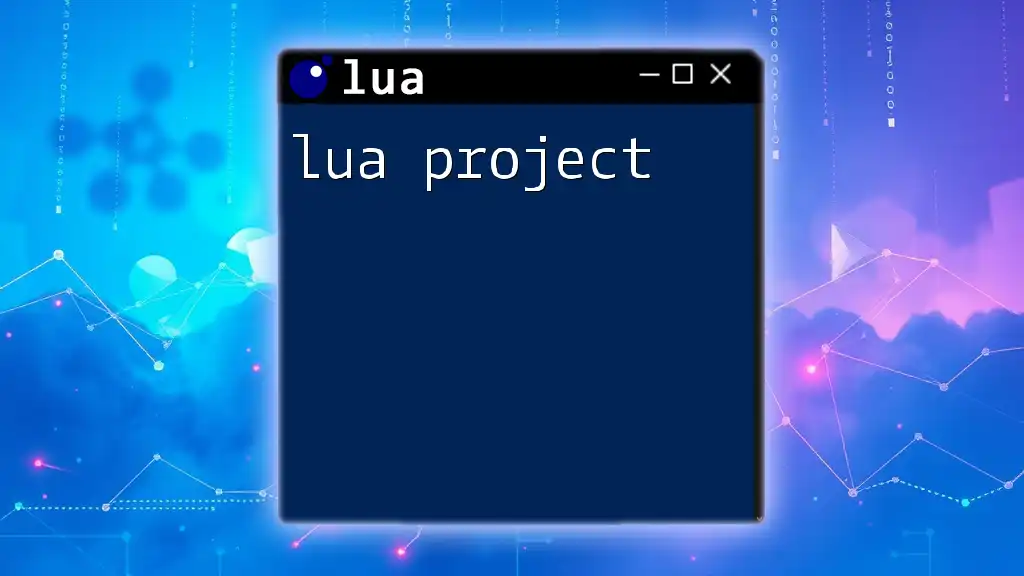
Getting Started with Lua
Setting Up the Environment
Before diving into lua projects, it’s crucial to set up a development environment. The installation process varies depending on the operating system:
- Windows: Download the Lua binaries from the official Lua website and follow the installation instructions.
- macOS: Lua can be easily installed using Homebrew with the command:
brew install lua - Linux: Most distributions support easy installation through package managers, such as `apt` on Ubuntu:
sudo apt-get install lua5.3
Once installed, choosing the right IDE or text editor enhances your coding experience. Some popular options are Visual Studio Code, ZeroBrane Studio, and Atom.
Basic Lua Syntax
Before engaging in projects, understanding Lua syntax is essential. Key features include:
- Variables: Using local and global variables to store data.
- Functions: Defining reusable code blocks.
- Tables: Lua’s primary data structure, versatile for arrays and dictionaries.
An example of a simple Lua program to get started is:
print("Hello, World!") -- A simple Lua program
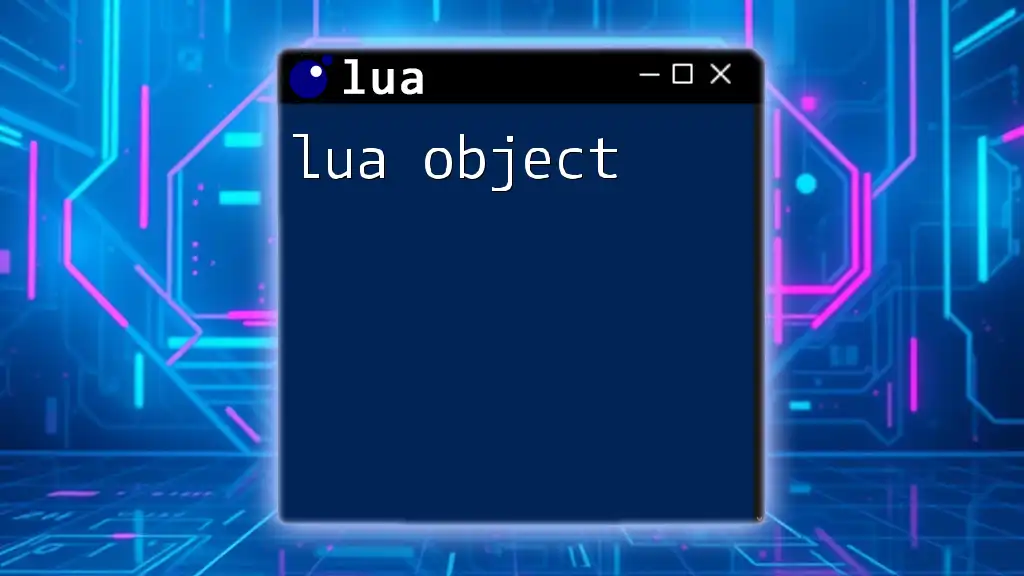
Project Ideas to Enhance Your Lua Skills
Game Development Projects
Building a Simple Game
Lua’s efficiency shines in game development, especially when integrated with engines like LÖVE. One interesting project is creating a simple Pong game. You'll learn about graphics rendering, input handling, and game loops.
Here’s a skeleton of a basic game loop in LÖVE:
function love.load()
-- Initialize game variables
end
function love.update(dt)
-- Update game state with time elapsed (dt)
end
function love.draw()
-- Render game elements on the screen
end
This initial setup provides the groundwork for more sophisticated gameplay mechanics.
Scripting and Automation
Automating Tasks with Lua
Lua is excellent for scripting and automating mundane tasks. A possible project involves writing a script to rename files in a directory, showcasing the power of file handling.
Here’s a simple Lua script that demonstrates this functionality:
for _, file in ipairs(love.filesystem.getDirectoryItems("MyFiles")) do
os.rename(file, "New_" .. file) -- Rename each file by prepending 'New_'
end
This task not only familiarizes you with Lua’s file I/O operations but also adds practical value to your skillset.
Web Development
Creating a Web Application with Lua
Lua can also be utilized for web applications using frameworks like Sailor. Building a basic blog application provides insights into routing and server communication.
A crucial aspect of web development in Lua is defining routes. Below is an example of setting up a route to display posts:
function router:get("/posts")
-- Logic for fetching and displaying posts from the database
end
By working on this project, you’ll gain experience in both server-side scripting and database interactions.
Data Analysis
Using Lua for Data Manipulation
Lua's versatility extends to data analysis. You can create scripts that read and analyze data files, such as CSV or JSON. A meaningful project would be writing a script that processes a CSV file and calculates summary statistics.
Here’s an example of reading a CSV file and printing its contents:
local csv = require("csv") -- Make sure to have the Lua CSV library
local data = csv.open("data.csv")
for fields in data:lines() do
print(fields[1], fields[2]) -- Print first and second fields of each row
end
Through this project, you will develop key skills in data processing and manipulate real-world datasets.
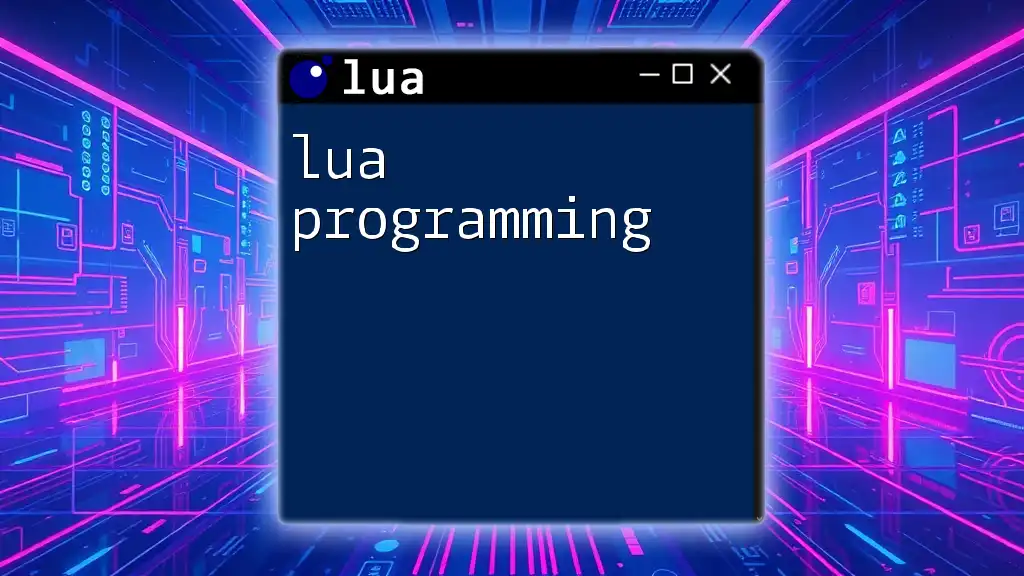
Tips for Successful Lua Projects
Best Practices for Lua Programming
While working on lua projects, following best practices can significantly improve your code quality:
-
Code Organization: Structure your code into modules and separate files for different functionalities. This not only aids in clarity but also promotes reusability.
-
Comments and Documentation: Regularly comment on your code and maintain documentation. Doing so assists not just you, but also others who may read your code in the future.
Debugging Techniques
Debugging is a critical part of coding. Common pitfalls include syntax errors and logical issues. Make extensive use of print statements to trace values during execution. Lua also offers debugger tools available in IDEs like ZeroBrane Studio for more advanced tracking.
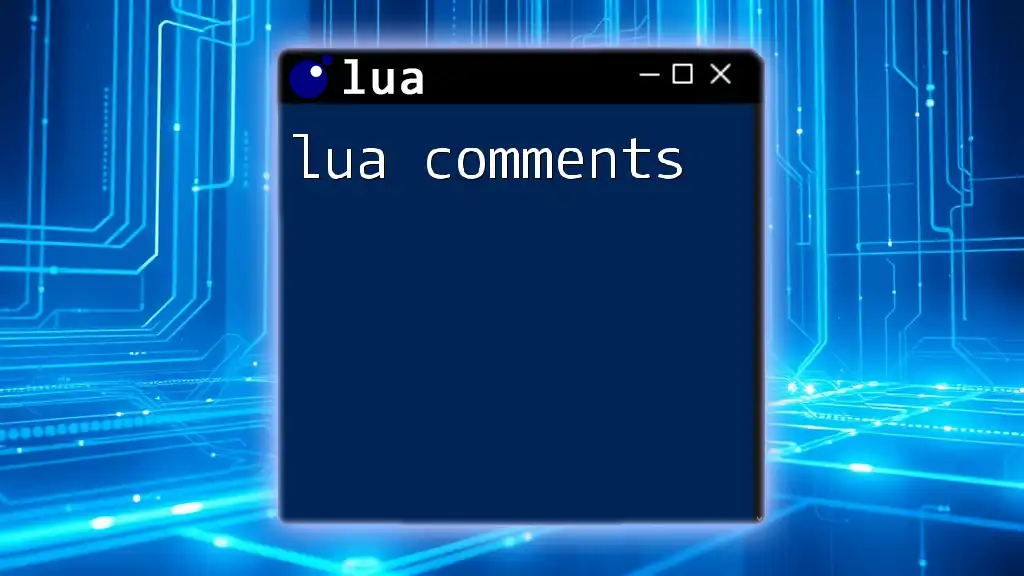
Resources for Further Learning
Books and Online Courses
To bolster your learning, consider reading books like Programming in Lua or Lua Quick Start Guide. Additionally, platforms like Udemy and Coursera offer comprehensive online courses tailored for different skill levels.
Community and Forums
Engaging with the Lua community can greatly enhance your learning experience. Notable forums include:
- Lua-users
- Stack Overflow
These platforms provide valuable insights, troubleshooting, and collaboration opportunities with fellow learners and experienced developers.
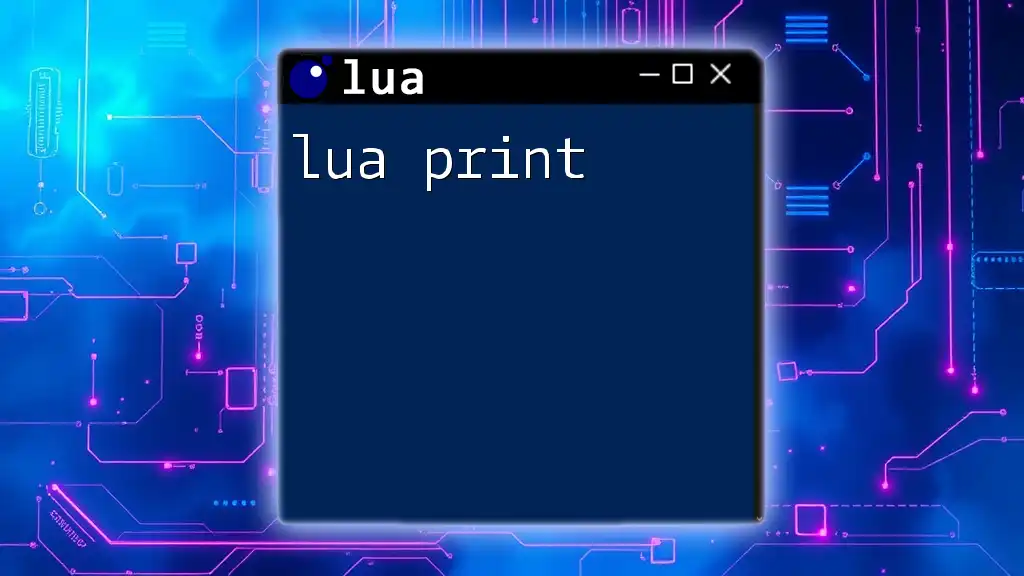
Conclusion
Mastering lua projects through practical application is key to enhancing your Lua programming skills. Start small with the basic examples and gradually tackle larger projects as your confidence grows. Remember, the best way to learn is by doing, so dive in, create, and share your journey in the world of Lua!
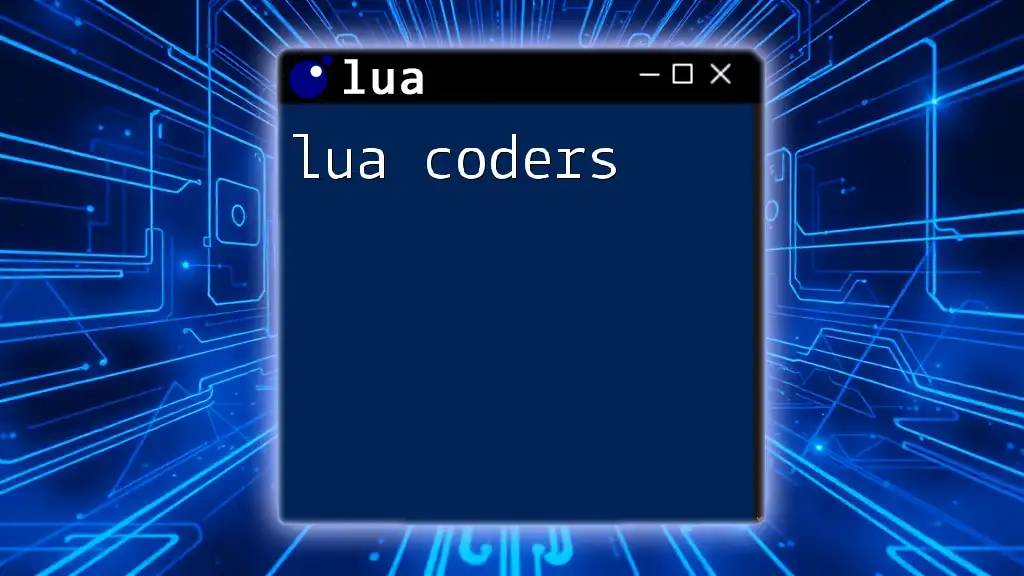
FAQ Section
If you have questions about using Lua for various projects or need specific advice on challenges you're facing, consider engaging in community forums, as many seasoned developers are eager to assist beginners and share their experiences.
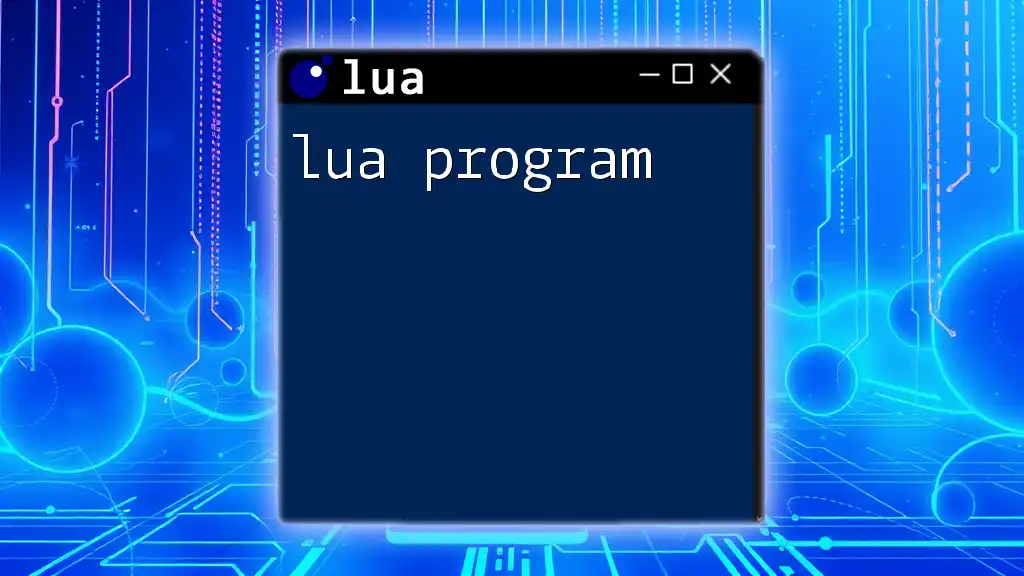
Final Thoughts
Lua is not only a powerful scripting language but also an excellent tool for enhancing your programming abilities. Be bold and explore the diverse applications of Lua in your projects, pushing the boundaries of what can be accomplished with this remarkable language.

